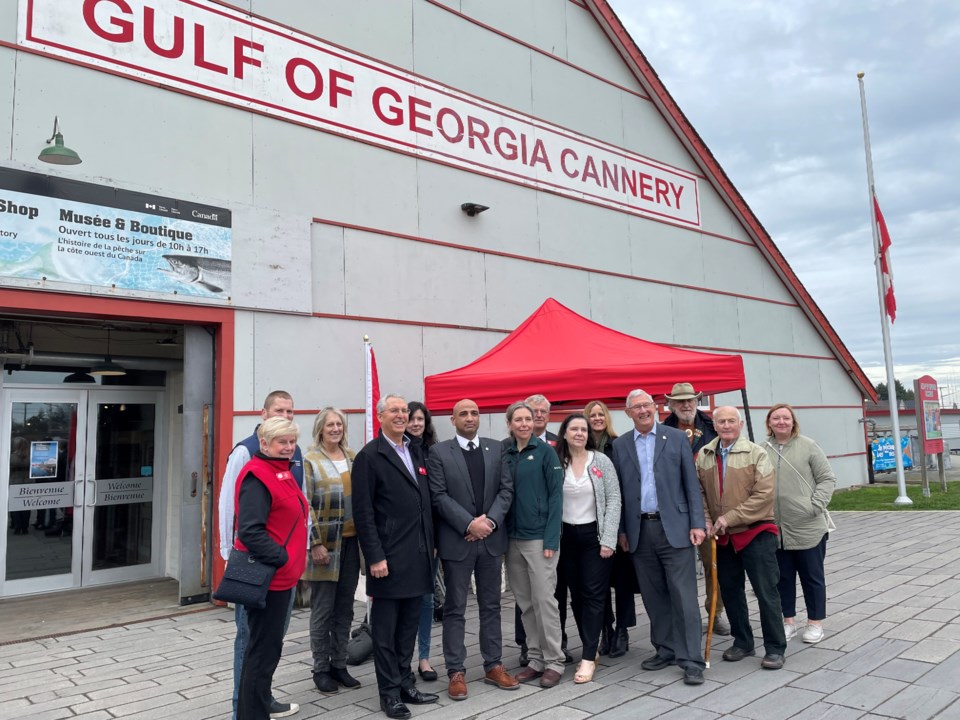Richmond's Gulf of Georgia Cannery has received a bump in funding for its operations.
Parm Bains, member of Parliament for Steveston-Richmond East, announced on Friday funding of $640,000 from the federal government to help continue operations at the historical site in Steveston.
This is up from $500,000 it has received in previous years.
The original cannery at Gulf of Georgia Cannery National Historic Site was built in 1894.
In 1976, it was designated as a historic site to honour the West Coast fishing industry. The industry stopped fish processing plant operations in 1979.
Bains, on behalf of Minister of Environment and Climate Change Steven Guilbeault, said the funding and renewed agreement between Parks Canada and the cannery society will help with site operations for the upcoming fiscal year.
"The history of the West Coast fishing industry is an important part of that heritage, and the Government of Canada is excited by this renewed commitment to provide more tools and flexibility to the cannery society for their important work right here in the heart of Steveston Village, the cornerstone of our beautiful city," said Bains.
The society and Parks Canada have been working together since the 1980s, according to Elizabeth Batista, executive director at the Gulf of Georgia Cannery Society.
"Working together has provided a solid foundation for achievements in heritage interpretation and community engagement," said Batista.
Canadians are also encouraged to give feedback on the Gulf of Georgia Cannery National Historic Site's draft management plan.
This plan will highlight what the site will work towards in the next 10 years including protecting cultural resources, developing visitor experiences, learning opportunities and collaborating with Indigenous communities and other organizations.
Bains added this is an example of how Richmond residents and government agencies work together to "ensure the protection and presentation of irreplaceable cultural heritage" in the country.
The deadline for feedback is April 19 and can be done by phone at 604-513-4777 or online by clicking here.
Got an opinion on this story or any others in Richmond? Send us a letter or email your thoughts or story tips to [email protected]. To stay updated on Richmond news, sign up for our daily headline newsletter.




